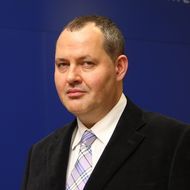- A
- A
- A
- ABC
- ABC
- ABC
- А
- А
- А
- А
- А
- HSE University
- Faculties
- Faculty of Economic Sciences
- Events
- FES International Research Seminar Series with Associate Professor Helios Herrera, University of Warwick, UK
-
Departments
- Departments
-
Institutes and Centres
-
- Institute of Economics and Utility Regulation
- Institute for Industrial and Market Studies
- Centre for Labour Market Studies
- International Centre of Decision Choice and Analysis
- Centre of Development Institute
- Centre for Financial Research & Data Analytics
- Economic Statistics Centre of Excellence
- Anti-Corruption Centre
-
-
Laboratories
-
- International Laboratory for Macroeconomic Analysis
- International Laboratory of Stochastic Analysis and its Applications
- International Laboratory for Experimental and Behavioural Economics
- Corporate Finance Center
- Laboratory for Banking Studies
- Laboratory for Labour Market Studies
- Laboratory for Sport Studies
- Laboratory for Wealth Measurement
- Project Laboratory for Development of Intellectual Competitions in Economics
- Laboratory for Spatial Econometric Modeling of Socio-Economic Processes in Russia
-
- Department of Financial Market Infrastructure
- ICEF
-
Educational Programmes
- Bachelor's Programmes
-
Master's Programmes
-
- Economics and Economic Policy
- Agrarian Economics
- Stochastic Modeling in Economics and Finance (Previously, Master's in Statistical Modelling and Actuarial Science)
- Statistical Analysis in Economics
- Economic Analysis (Online)
- Strategic Corporate Finance
- Financial Markets and Institutions
- Corporate Finance
- Financial Engineering
- Master of Business Analytics (Online)
- Investments in Financial Markets (Online)
-
- Doctoral Programmes
-
Faculty
109028, Moscow,
11 Pokrovsky Boulevard,
Room Т-614
Phone: (495) 628-83-68
email: fes@hse.ru
Founded in 1992, the HSE Faculty of Economics is the university’s oldest faculty. In the years since it was founded, it has gained a reputation as Russia’s leader in terms of higher economic education.
A fundamental education in modern economic theory and mathematics is combined with the study of applied disciplines, such as taxation, budget policies and processes, financial management and other related fields.
Population and Economics. 2024. Vol. 8. No. 1. P. 132-155.
In press
In bk.: Oxford Research Encyclopedia of Economics and Finance. Oxford University Press, 2024.
Dagaev D., Paklina S., Parshakov P.
Social Science Research Network. Social Science Research Network. SSRN, 2024

FES International Research Seminar Series with Associate Professor Helios Herrera, University of Warwick, UK
Our next speaker in the FES International Research Seminar Series is Helios Herrera, who is an Associate Professor of Economics at the University of Warwick. Helios has primary research interests in the fields of political economy, applied micro theory and experimental economics. He published in many leading journals such as Restud, EJ, JPubE, JIE, TE and GEB.
Speaker: Helios Herrera, University of Warwick
Title: Populism: Demand and Supply
The abstract: We define as “populist” a party that champions short-term protection policies while hiding their long-term costs by using anti-elite rhetoric to manipulate beliefs. Our framework rationalizes this definition and generates significant implications for people’s support for populist platforms (the demand side), for the timing of the appearance of populist parties and their chosen orientation (the supply side) and also for the response of non-populist parties to the success of the populists (an equilibrium market reaction). Using individual data on voting in European countries, we show that key features of the demand for populism as well as its supply heavily depend on turnout incentives, previously neglected in the populism literature. Once turnout effects are taken into account, economic insecurity drives consensus to populist policies directly as well as through indirect negative effects on trust and attitudes towards immigrants. On the supply side, populist parties are more likely to emerge and prosper when countries are faced with a systemic crisis of economic security that incumbent parties (whether left-leaning, relying on government, or right-leaning, relying on markets) find hard to address, disappointing voters who lose faith in them and abstain. The orientation choice of populist parties, i.e., whether they arise on left or right of the political spectrum, is determined by the availability of political space. The typical non-populist policy response is to reduce the distance of their platform from that of new populist entrants, amplifying the aggregate supply of populist policies.
Date: April 25, 2018
Time: 13:40-15:00
Venue: Shabolovka campus, room 3211
FES Seminars webpage: https://economics.hse.ru/en/seminars/
For external participants: to order the pass, please contact dmalbakhova@hse.ru
- About
- About
- Key Figures & Facts
- Faculties & Departments
- International Partnerships
- Faculty & Staff
- HSE Buildings
- Public Enquiries
- Studies
- Admissions
- Programme Catalogue
- Undergraduate
- Graduate
- Exchange Programmes
- Summer University
- Summer Schools
- Semester in Moscow
- Business Internship
-
https://elearning.hse.ru/en/mooc/
Massive Open Online Courses
-
https://www.hse.ru/en/visual/
HSE Site for the Visually Impaired
-
http://5top100.com/
Russian Academic Excellence Project 5-100
- © HSE University 1993–2024 Contacts Copyright Privacy Policy Site Map
- Edit





